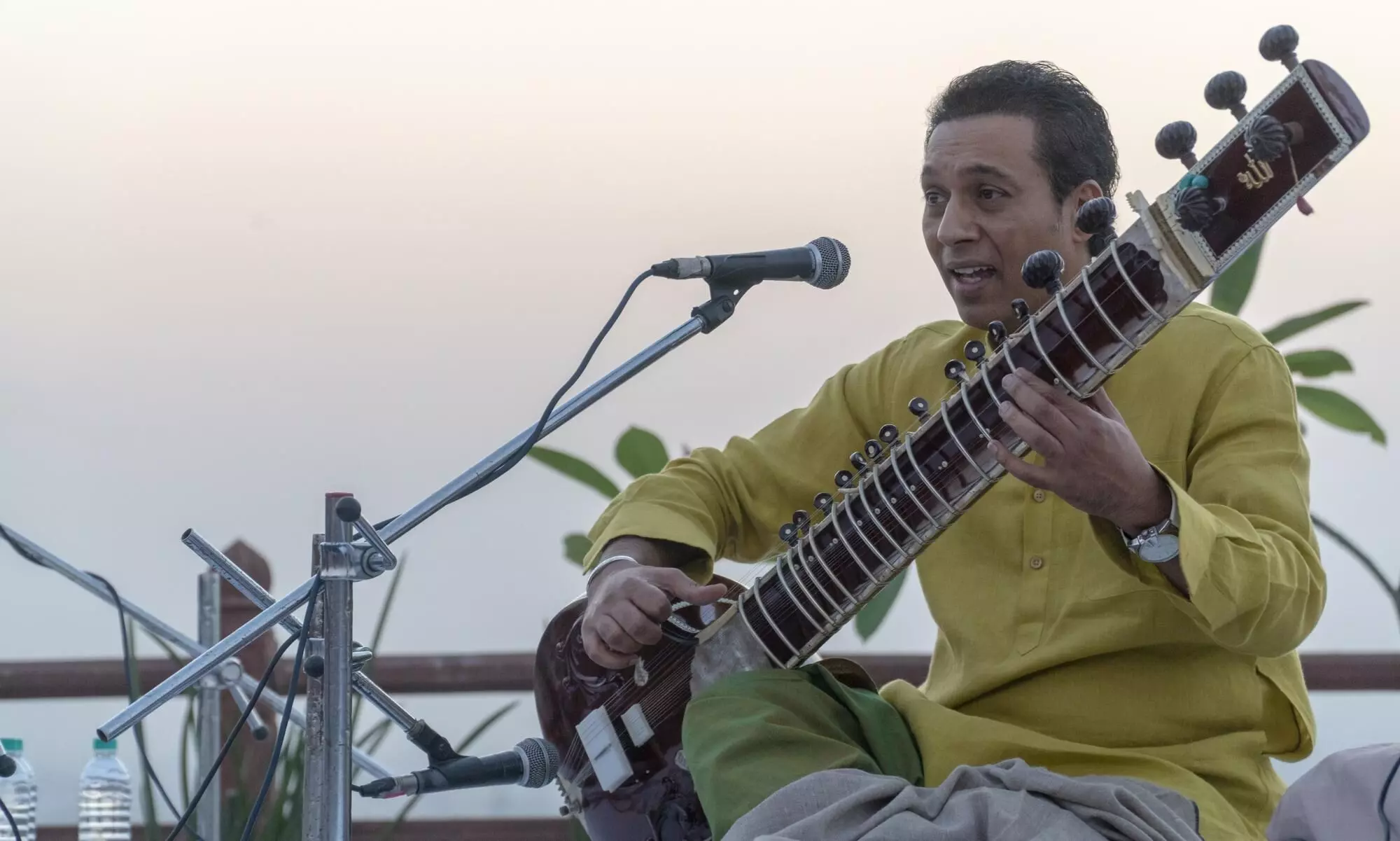Root of all music is classical music: Hidayat Hussain Khan
Son of the legendary Ustad Vilayat Khan, the sitarist has released his version of the National Anthem

Renowned sitarist and vocalist Hidayat Husain Khan comes from one of the most respected families in Hindustani classical music. As the son of the legendary Ustad Vilayat Khan, he has gained international recognition for modernising classical music while keeping its essence intact. To honour India’s diversity, he has released a stirring track, ‘Jai Hind’, ahead of Republic Day. He believes that classical music is the foundation of all music and also sees a growing interest in Indian classical music among young people. ‘Millennium Post’ speaks with the sitarist about his growing up years and the current state of classical music.
What was the inspiration behind your rendition of the National Anthem?
I had done this event in New York, where they asked me to perform the National Anthem, which started the whole seed. So, while I was preparing for that, I heard a whole bunch of different versions of how people had done it. I found that most of the renditions people had done were very much fusion-based. I wanted to do something that was more rooted in Indian traditions and music. That’s where the concept for the rendition started.
What was the process of working on it?
The composition begins with a meditative alaap and takes the listener right into the core values that define India’s historical evolution. The rhythmic ‘tabla’ patterns capture our nation’s joyous diversity. It peaks with a fast-paced ‘jhala’, representing India’s dynamic energy, before culminating in a solo symbolising unity in diversity.
In Kolkata right now, several Indian classical music conferences are underway, starting with the Dover Lane Music Conference. You travel the world and perform. How has the young generation taken to Indian classical music?
I think very well. A lot of people feel that the younger generation doesn’t appreciate it. I don’t think that is true. There’s a huge audience, as you mentioned, at the Dover Lane Music Conference. I mean, it’s been around for so many years and it still brings the audience back. I think what happens is that at some level, the media pays so much attention to popular music and Bollywood music that one begins to feel that there is no representation of Indian classical music. However, I believe the audience for Indian classical music is only growing.
You have worked in films like Mira Nair’s ‘Kamasutra’. Why don’t you compose more for films?
It’s all about opportunity. I’ve had a few opportunities to do some projects. But again, it wasn’t in my sensibility. I’m not somebody who is into popular music. So those kinds of opportunities came to me and I knew I wouldn’t be able to do justice to them, as the already existing music directors are doing. I’m hoping for the right kind of opportunity to come my way. I would love to do a background score.
What’s your take on the representation of Indian classical music in Bollywood?
The root of all music is classical music. So, you have to have an understanding and education in the classical format to be a good composer for any genre of music. But I think the confusion arises when there’s a lot of mislabelling of music that happens. A few years ago, everything was Sufi. Now, you put Allah or Rab or something like that in a song and everyone was selling music like that. These are just fads that come and go. But I think in the last 20 years, Bollywood music has picked up well.
Music & Memories
You were trained under the expert guidance of your father, the legendary Ustad Vilayat Khan. Was he a hard taskmaster?
Oh, definitely. I mean, he expected a lot from his students because he gave them a lot as well. But it was very different. Our house was not as restrictive and rigid as today’s times. Especially nowadays, when a guru walks into the room, all the students need to stand up like they’re in some kind of army parade. And they all do ‘salaam’ and ‘jhukke pranaam’. It just feels unnatural to me. Our house had a very open dialogue. Abba always encouraged all his students to be creative in whatever they learned. He encouraged his students to find their own path. I look back at my childhood fondly, but I won’t forget that it was pretty difficult as well.
Apart from the music that he has taught you, what has been the lifelong lesson that has remained with you from the legend?
So many things. One of the most important things that my parents have taught me is not to be entitled. I mean, be humble and keep your feet on the ground. He always said to figure out one’s own journey and not to be scared to make mistakes.



